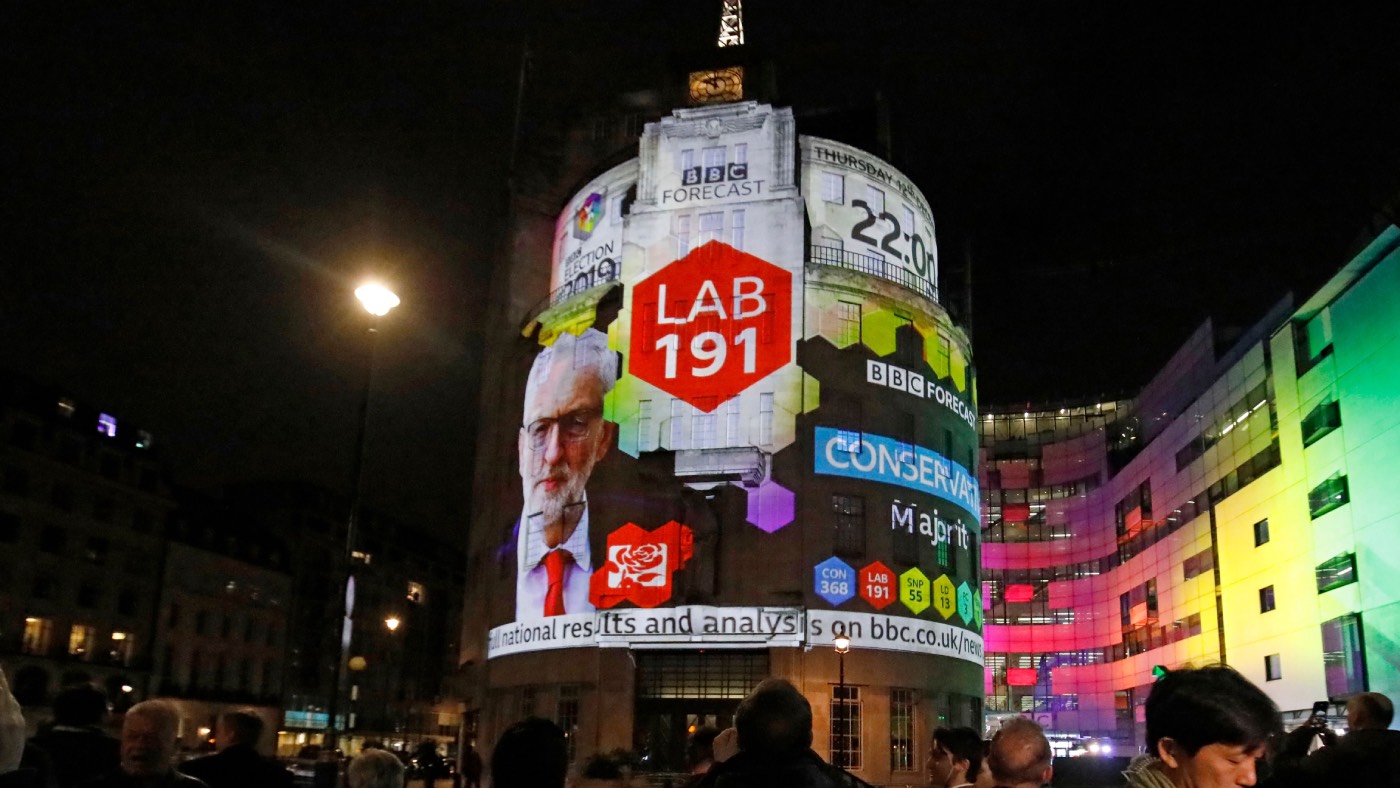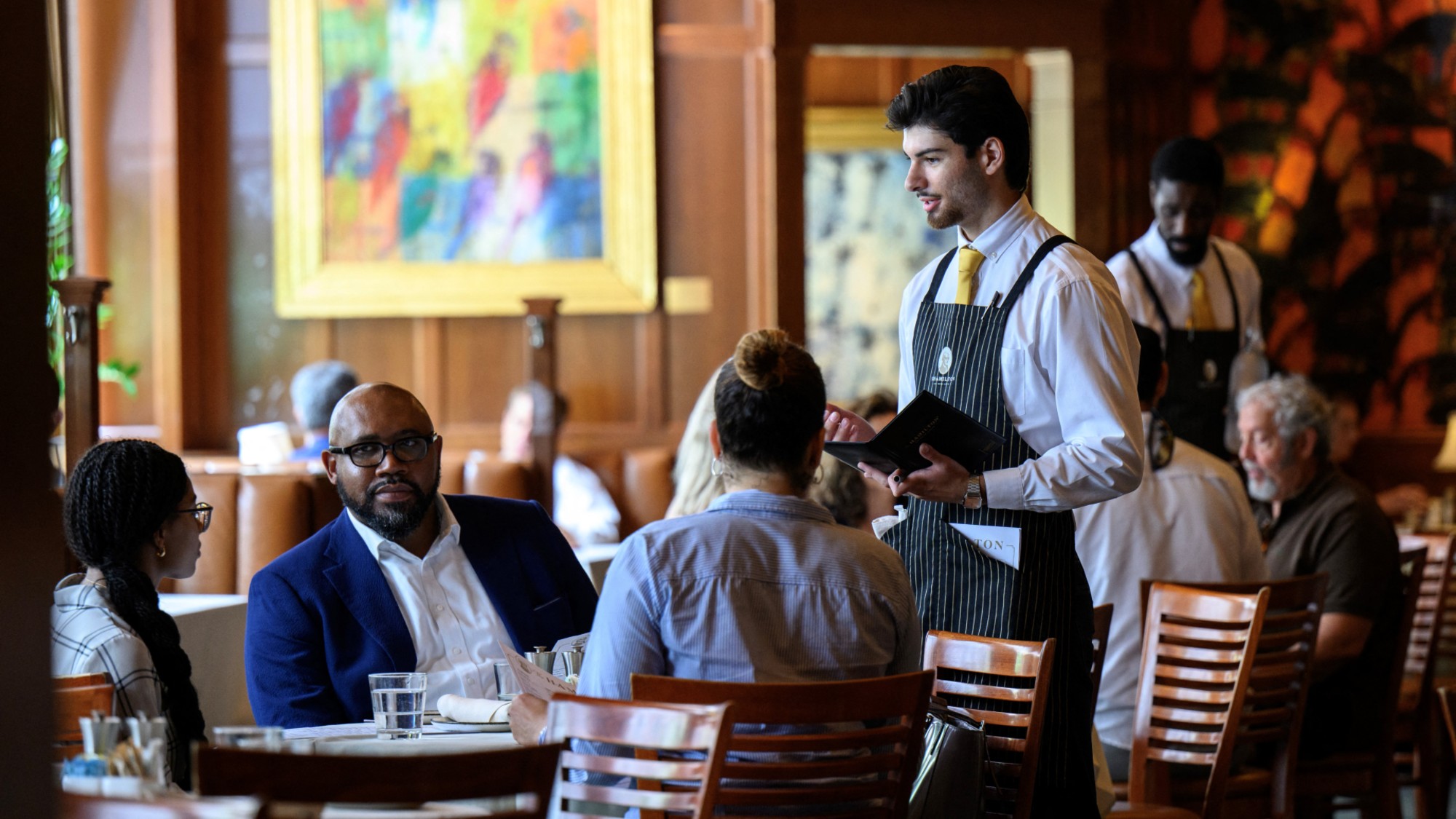Was BBC biased against Jeremy Corbyn during the election campaign?
Shadow transport secretary says Labour leader was ‘demonised and vilified’ by broadcasters

A free daily email with the biggest news stories of the day – and the best features from TheWeek.com
You are now subscribed
Your newsletter sign-up was successful
The debate over media impartiality has intensified after the shadow transport secretary accused the BBC and other broadcasters of allowing Jeremy Corbyn to be “demonised and vilified” during the general election campaign.
Andy McDonald said the behaviour of the BBC should make people “worry about our democratic processes” adding that he had “never in my lifetime known any single individual so demonised and vilified, so grotesquely and so unfairly” as Corbyn was.
“We know we’ve got the forces of the establishment, the elite, against us,” he told BBC Five Live, adding that the Labour leader had been “vilified as an anti-Semite” and compared to Stalin.
The Week
Escape your echo chamber. Get the facts behind the news, plus analysis from multiple perspectives.

Sign up for The Week's Free Newsletters
From our morning news briefing to a weekly Good News Newsletter, get the best of The Week delivered directly to your inbox.
From our morning news briefing to a weekly Good News Newsletter, get the best of The Week delivered directly to your inbox.
“We’ve always had the print media, which is page after page after page of press barons absolutely destroying and vilifying Labour leaders from time immemorial,” he said.
“What’s changed in this election is the way the broadcast media have joined in with that battle. And you know that we have a catalogue of complaints against our public service broadcaster, our precious BBC, which I’m afraid has been brought into the fray.”
Last week, Corbyn also hit out at media bias, saying: “I've received more personal abuse than any other leader has ever received by a great deal of the media” and adding that he had been “misrepresented”.
McDonald’s outburst came hours after The Guardian reported that Downing Street was considering decriminalising non-payment of the licence fee, while boycotting Radio 4’s Today programme over the broadcaster’s supposed anti-Tory bias.
A free daily email with the biggest news stories of the day – and the best features from TheWeek.com
Downing Street said Andrew Neil’s on-air monologue slamming Johnson for his refusal to be interviewed, and the BBC’s “extensive coverage” of a four-year-old boy forced to sleep on a hospital floor showed there was anti-Tory bias at the corporation.
Leading figures at the BBC have hit back at accusations from both sides. Huw Edwards, the veteran who anchored the corporation’s election night coverage, criticised “toxic cynicism and accusations of bias from all sides”.
In a blog post, he wrote: “You realise yet again that the real purpose of many of the attacks is to undermine trust in institutions which have been sources of stability over many decades. The apparent purpose, in short, is to cause chaos and confusion.”
Last week, the BBC’s director general, Tony Hall, sent an email to staff saying: “In a frenetic campaign where we’ve produced hundreds of hours of output, of course we’ve made the odd mistake and we’ve held up our hands to them.
“Editors are making tough calls every minute of the day. But I don’t accept the view of those critics who jump on a handful of examples to suggest we’re somehow biased one way or the other.”
–––––––––––––––––––––––––––––––For a round-up of the most important stories from around the world - and a concise, refreshing and balanced take on the week’s news agenda - try The Week magazine. Start your trial subscription today –––––––––––––––––––––––––––––––
-
 Political cartoons for February 20
Political cartoons for February 20Cartoons Friday’s political cartoons include just the ice, winter games, and more
-
 Sepsis ‘breakthrough’: the world’s first targeted treatment?
Sepsis ‘breakthrough’: the world’s first targeted treatment?The Explainer New drug could reverse effects of sepsis, rather than trying to treat infection with antibiotics
-
 James Van Der Beek obituary: fresh-faced Dawson’s Creek star
James Van Der Beek obituary: fresh-faced Dawson’s Creek starIn The Spotlight Van Der Beek fronted one of the most successful teen dramas of the 90s – but his Dawson fame proved a double-edged sword
-
 How corrupt is the UK?
How corrupt is the UK?The Explainer Decline in standards ‘risks becoming a defining feature of our political culture’ as Britain falls to lowest ever score on global index
-
 The high street: Britain’s next political battleground?
The high street: Britain’s next political battleground?In the Spotlight Mass closure of shops and influx of organised crime are fuelling voter anger, and offer an opening for Reform UK
-
 Biggest political break-ups and make-ups of 2025
Biggest political break-ups and make-ups of 2025The Explainer From Trump and Musk to the UK and the EU, Christmas wouldn’t be Christmas without a round-up of the year’s relationship drama
-
 Nigel Farage’s £9mn windfall: will it smooth his path to power?
Nigel Farage’s £9mn windfall: will it smooth his path to power?In Depth The record donation has come amidst rumours of collaboration with the Conservatives and allegations of racism in Farage's school days
-
 Is a Reform-Tory pact becoming more likely?
Is a Reform-Tory pact becoming more likely?Today’s Big Question Nigel Farage’s party is ahead in the polls but still falls well short of a Commons majority, while Conservatives are still losing MPs to Reform
-
 The launch of Your Party: how it could work
The launch of Your Party: how it could workThe Explainer Despite landmark decisions made over the party’s makeup at their first conference, core frustrations are ‘likely to only intensify in the near-future’
-
 ‘The business ultimately has a customer base to answer to’
‘The business ultimately has a customer base to answer to’Instant Opinion Opinion, comment and editorials of the day
-
 Taking the low road: why the SNP is still standing strong
Taking the low road: why the SNP is still standing strongTalking Point Party is on track for a fifth consecutive victory in May’s Holyrood election, despite controversies and plummeting support